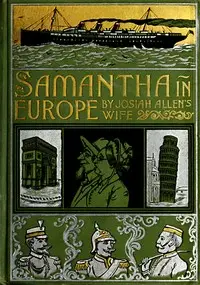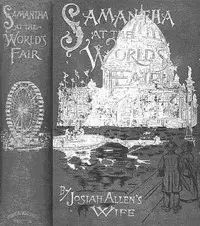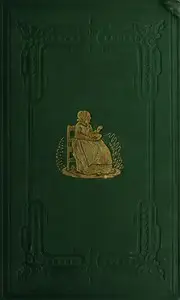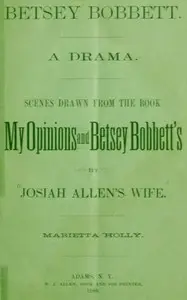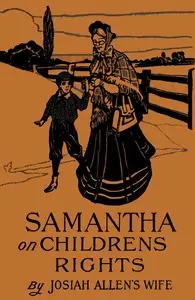"Samantha at Saratoga" by Marietta Holley is a funny story from the 1800s, telling about Samantha Allen and she and her husband Josiah visit Saratoga Springs. The story shows Samantha working through social expectations of their time. The book begins with Samantha thinking about the trip and trying to convince her husband, Josiah, it will help his feet, because she thinks it will be a good experience. The book also shows how Samantha views the world and what life is like at home, highlighting the funny relationship with her husband, plus how her neighbors feel about their trip. All this sets up the funny story of Samantha and Josiah's upcoming trip.
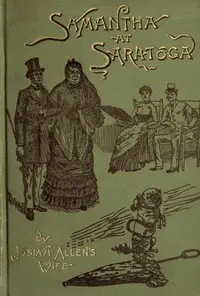
Samantha at Saratoga
By Marietta Holley
A witty woman drags her reluctant husband to a fancy resort where their old-fashioned values clash with modern society, leading to hilarious situations.
Summary
About the AuthorMarietta Holley, was an American humorist who used satire to comment on U.S. society and politics. Holley enjoyed a prolific writing career and was a bestselling author in the late 19th century, though she was largely forgotten by the time of her death. Her writing was frequently compared to that of Mark Twain and Edgar Nye. Along with Frances Miriam Whitcher and Ann S. Stephens, Holley is regarded as one of America's most significant early female humorists. Her work appealed to all classes of society. Her readers were scattered over the entire world, and included men and women of every station and grade. Her books were widely read in Europe.
Marietta Holley, was an American humorist who used satire to comment on U.S. society and politics. Holley enjoyed a prolific writing career and was a bestselling author in the late 19th century, though she was largely forgotten by the time of her death. Her writing was frequently compared to that of Mark Twain and Edgar Nye. Along with Frances Miriam Whitcher and Ann S. Stephens, Holley is regarded as one of America's most significant early female humorists. Her work appealed to all classes of society. Her readers were scattered over the entire world, and included men and women of every station and grade. Her books were widely read in Europe.




